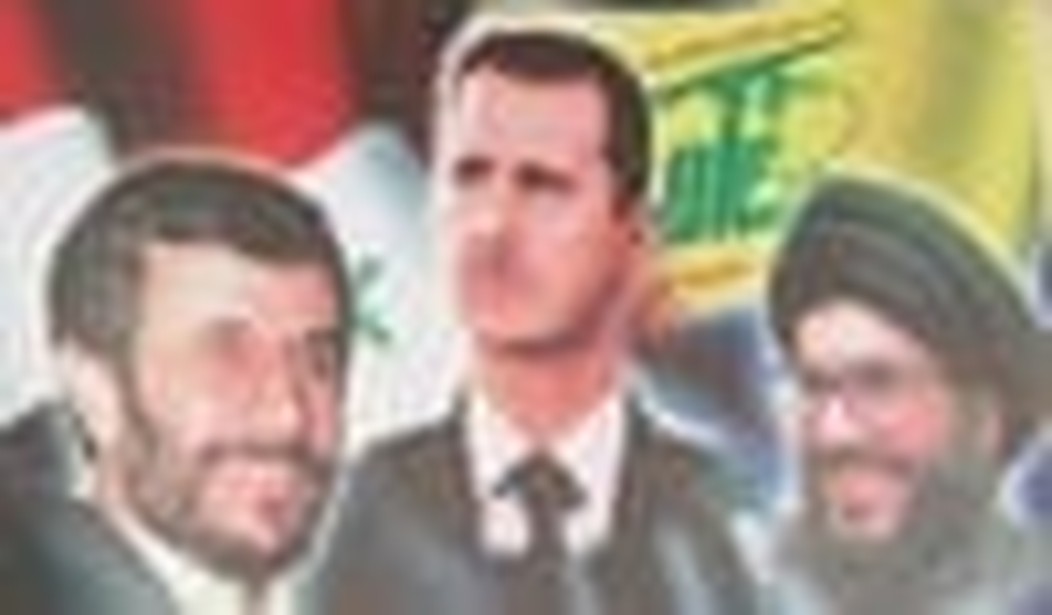The announcement that the Obama administration has decided to begin the arming of the Syrian rebels no doubt marks a dramatic and significant moment in the course of the civil war in Syria. The commitment comes, not by chance, at a moment when the fortunes of war appear to be turning in the direction of the Assad regime.
Yet the administration’s statement leaves many unanswered questions regarding the nature and extent of the support to be afforded the rebels, and whether this will prove able to achieve anything more than re-instating the now precarious stalemate between the sides.
The ostensible precipitating factor for the U.S. decision was Washington’s conclusion that the Assad regime had used chemical weapons on a number of occasions in the course of the fighting.
But the timing of the U.S. decision must also be seen in the broader context of events in Syria. For a long period of time, supporters of President Obama would sagely observe that the administration’s ostensibly hands-off policy on Syria was working.
There was no visible U.S. or Western presence. Yet it was an open secret that behind the scenes Western special forces were helping to train selected rebels in Jordan and Turkey, while Western intelligence agencies assisted in facilitating arms purchases by Saudi Arabia, and the identification of deserving recipients for these weapons.
This approach seemed to combine the best of both worlds. There was no obvious U.S. footprint. At the same time, the behind-the-scenes assistance appeared to be producing the desired result. The rebels were gradually, and it seemed inexorably, moving forward.
This, however, is no longer the case.
As it turned out, the determined international coalition that has stood behind Assad since the start was also doing its share of behind-the-scenes organizing. This involved enlisting the assistance of Iranian assets in Lebanon and Iraq, and the transformation by Iran and Hizballah of Assad supporting irregulars into a sort of outsize sectarian militia called the National Defense Force.
These newly available formations were committed to battle in recent weeks in Qusayr. Hizballah fighters formed the spearhead.
The results were mixed. It took Hizballah forces backed by regime artillery and air support 17 days to conquer this small city – in the past inhabited by 30,000 people.
Assad’s forces were facing an enemy entirely lacking any air capacity or artillery, and almost surrounded. So the taking of Qusayr was not some sweeping military triumph.
Nevertheless, it did represent a development of primary importance. The Assad regime in Qusayr demonstrated that the military initiative was no longer in the hands of the rebels. Rather, the regime had successfully blocked rebel attempts to open a battle for the capital, had re-conquered areas of the south, and had now re-taken a strategically significant town that had been held by its enemies for the previous 18 months.
All this appears to have been a prelude to a larger regime attempt to re-conquer northern Syria, which is set to commence in the very near future. First on the list for re-conquest is the city of Aleppo, Syria’s largest city. Aleppo has been divided between rebel and regime forces since last August. Assad and his allies want to stage a repeat performance of the Qusayr events, on a vastly larger stage.
Preparations are underway. Rebels note ceaseless activity in the regime positions facing them in the Aleppo area. Two Shia villages above the city, Nubul and Zahra, are playing host to Shia fighters and regime troops. A Lebanese businessman quoted in a British newspaper described Hizballah fighters in Lebanon preparing for departure to take part in the assault on Aleppo. Regime media outlets have dubbed the operation to re-conquer lost ground “Operation Northern Storm.’”
Success in this endeavor has the capacity to deal a death-blow to the rebellion — reducing it to the status of an ongoing insurgency controlling a few isolated rural areas, rather than a serious contender for power in the country.
Such a victory for the Assad/Iran/Hizballah/Russia side in the Syrian civil war would represent a strategic disaster for the U.S. and the West in the region.
It would conclusively demonstrate whose will should be taken into account in the Mid-East, and whose can be safely ignored.
The prospect of this appears to have belatedly induced the U.S. to increase its aid to the rebels. It is not yet clear, however, what form increased U.S. aid will take.
If it consists only of increased supplies of small arms and ammunition, as officials quoted in the New York Times suggested, this will probably be enough to keep the rebels in the fight, but will not deliver a speedy end to the war. This currently seems the likely extent of the change. Deputy National Security Advisor Ben Rhodes at a news briefing appeared to dismiss speculation regarding a possible no-fly zone in the south.
U.S. hesitation and vacillation on Syria, plus the haplessness and disunity of the rebels, have brought Assad, Iran, and Russia to within sight of a strategic triumph. The U.S. is now belatedly reacting to this perilous prospect. It remains to be seen whether the extent and nature of the next moves by Washington will be sufficient to stop the regime’s advance and once more turn the tide in the agonizing civil war in Syria.









Join the conversation as a VIP Member